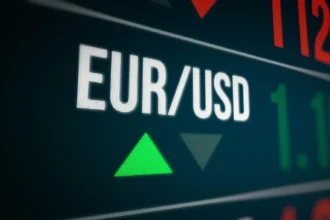The European Central Bank (ECB) remains at the forefront of economic policy adjustments as inflationary pressures and economic uncertainties continue to shape financial markets. ECB Governing Council member Martins Kazaks recently indicated that further interest rate cuts could be on the horizon if the current economic trajectory remains steady. This development could have significant implications for investors, businesses, and consumers alike.
In this article, we explore what Kazaks’ statement means for the European economy, the potential impact on financial markets, and the broader global implications of a dovish monetary policy shift by the ECB.
ECB’s Stance on Interest Rate Cuts
During an interview with Bloomberg News, Kazaks emphasized that if the economic outlook remains stable, the ECB could lower borrowing costs further. This statement aligns with the ECB’s gradual approach to monetary easing, aimed at supporting economic recovery while keeping inflation in check.
Key Factors Influencing ECB’s Decision
Several economic indicators will influence the ECB’s decision on interest rates in 2025:
- Inflation Trends – A continued decline in inflation could justify further rate cuts.
- Economic Growth – Sluggish GDP growth in the Eurozone may prompt additional monetary stimulus.
- Employment Data – A weakening labor market could push the ECB toward more accommodative policies.
- Geopolitical Risks – Trade tensions and tariffs, as highlighted by Kazaks, add another layer of uncertainty.
- Global Monetary Policy Trends – Actions by the U.S. Federal Reserve and other central banks may impact ECB’s policy decisions.
How Interest Rate Cuts Could Impact the Economy
Potential Benefits:
- Lower borrowing costs: Encourages businesses and consumers to take out loans, boosting spending and investment.
- Weaker Euro: A lower interest rate environment could weaken the Euro, making European exports more competitive.
- Stock Market Growth: Equity markets typically respond positively to lower interest rates, attracting investors.
Potential Risks:
- Inflationary Pressure: Excessive rate cuts could lead to overheating in certain sectors.
- Banking Sector Challenges: Lower rates may squeeze bank profit margins, affecting lending.
- Long-term Stability Concerns: Overreliance on low rates may create financial imbalances.
Global Implications of ECB’s Monetary Policy
A potential ECB rate cut could have ripple effects across global financial markets. Investors may shift capital into higher-yielding assets, while central banks worldwide might adjust their policies in response to European economic conditions.
Additionally, if the ECB moves towards easing while the U.S. Federal Reserve maintains a tight policy, we could see fluctuations in currency markets, affecting international trade dynamics.
Frequently Asked Questions (FAQs)
1. Why is the ECB considering rate cuts?
- To stimulate economic growth and prevent deflationary risks.
2. How do lower interest rates impact consumers?
- They reduce loan and mortgage costs, making borrowing cheaper.
3. What does a weaker Euro mean for the economy?
- It can boost exports but also make imports more expensive, impacting inflation.
4. When could the ECB implement further rate cuts?
- If economic indicators show stagnation or inflation continues to fall.
5. How will ECB rate cuts impact global markets?
- They may lead to capital flows into emerging markets and influence other central banks’ policies.
Conclusion
Martins Kazaks’ statement on potential ECB rate cuts highlights the bank’s cautious approach to monetary policy in 2025. As economic uncertainty persists, investors and businesses must stay informed about central bank decisions and their implications for financial markets. Whether the ECB moves forward with rate cuts will depend on inflation, economic growth, and geopolitical developments.
Disclaimer
The information provided in this article is for educational and informational purposes only. It does not constitute financial advice. Readers should conduct their own research and consult financial professionals before making investment decisions.



